
WASHINGTON — A draft executive order reviving Bush-era detention and interrogation policies that circulated on Wednesday is a revised version of the “most comprehensive” executive action on the topic proposed for the first 100 days of a Mitt Romney White House.
The original text of the document was prepared in September 2012 by then-presidential candidate Romney’s legal and policy advisers as a potential executive order, according to a source familiar with the document who provided it to BuzzFeed News and metadata accessible in the document.
Most of the text that appears in the Trump document appears in the 2012 document as part of a package of options, “ranging from the narrowest (Option 1) to the most comprehensive (Option 2)” to address “the fight against international jihadist terrorist groups.”
The Trump camp draft presents, with minor adjustments, the Romney-era draft’s Option 2, the most wide-reaching of the draft’s options — the only one that explicitly makes reference to detention and interrogation programs run by the CIA.
There was talk in the Trump White House about the black site executive order in the past few days, but it was never a concrete policy change, a US official told BuzzFeed News. Multiple outlets published the memo on Wednesday, reporting that the “black sites” document was being “developed” and considered by the Trump White House.
White House press secretary Sean Spicer said Wednesday afternoon that the document was “not a White House document,” adding, “I have no idea where it came from.”
Later Wednesday, a White House spokesperson did not respond to a request for comment on the pair of documents.
There is, of course, overlap between advisers to the two Republican nominees, with the person responsible for Romney’s transition planning, former Utah Gov. Mike Leavitt, also providing transition planning advice to Trump.
The Trump draft executive order, if signed, would re-open several paths to torture and harsh interrogations that had been closed during the Obama administration’s tenure. The potential order would specifically rescind two executive orders signed by Obama in the first days of his presidency which, among other things, forbid the CIA’s use of black sites — secret overseas prisons where terror suspects were subject to harsh interrogation tactics and torture.
The Trump draft also uses the “strikethrough” feature throughout to change the word “jihadist” terrorist groups to “Islamist” and "radical Islamist" terrorist groups.
The most substantive change to the document is the addition of a full paragraph on the draft’s first page and an annotation within the proposal, which account for anti-torture statutes that have been passed since the 2012 memo was first written. The National Defense Authorization Act provision, which limits government interrogators to techniques listed in the Army Field Manual, presents a “significant statutory barrier,” according to the new version of the document.
Among the minor changes to the Trump version are a prohibition on transferring detainees out of the Guantanamo Bay detention facility and a small language change to include the fight against ISIS, which didn’t exist by name in 2012.
The Trump draft also explicitly reinstates a now-defunct Bush-era executive order that the Romney draft stated would have automatically gone back into effect due to the applicable laws in effect at the time given the other actions taken in the order. That Bush-era order, 13440, twists the legal interpretations of the Geneva Conventions to allow a CIA program operation to operate outside of them.
The Romney campaign memo says the policy is “designed to reverse ill-considered policy decisions, to ensure the continued maintenance and use of the facilities at GTMO for the effective detention and trial by military commission of the most dangerous alien enemy combatants, and, if determined appropriate, to initiate immediately an interagency process for the development of effective and lawful detention and interrogation practices that implement the full statutory authorities provided by Congress.”
The CIA and military have said they would oppose the return of black sites and that their use is counterproductive. Further, anti-torture advocates say, the executive order would mean little given the legal barriers recently imposed by Congress.
“The Explanatory Statement posted today says that the NDAA ‘provides a significant statutory barrier to the resumption of the CIA interrogation program.’ That’s just not strong enough,” said Daniel Jones, the lead author of the Senate Intelligence Committee’s report on the CIA’s now-defunct program. “The McCain/Feinstein Amendment in the 2016 NDAA prohibits the resumption of the CIA’s interrogation program — and bars any interrogation techniques that involve the ‘the use or threat of force.’
“In regards to secret detention sites, that’s not going to happen either, the NDAA amendment requires direct ICRC access to all detainees held by the United States,” Jones said. “That amendment was passed with overwhelming bipartisan support, with a vote of 78-21.”
There is little appetite in Congress to reverse those legislative barriers, which would take either some extraordinary legal acrobatics or blatant disregard for the law to circumvent.
Trump, though, has stacked his national security circle with torture apologists, if not outright torture advocates. Recently confirmed CIA director Mike Pompeo has indicated that, although he considers waterboarding illegal under current law, he would be open to seeking changes to that law if national security officials said it was needed.
Excluded from this position is Defense Secretary Ret. Gen. James Mattis, who has openly abhorred the use of harsh interrogation techniques and told Trump as much.
2012:
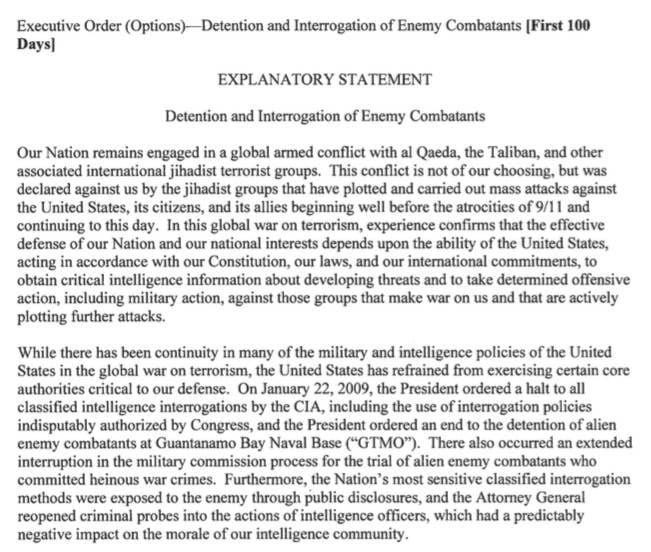
2017:
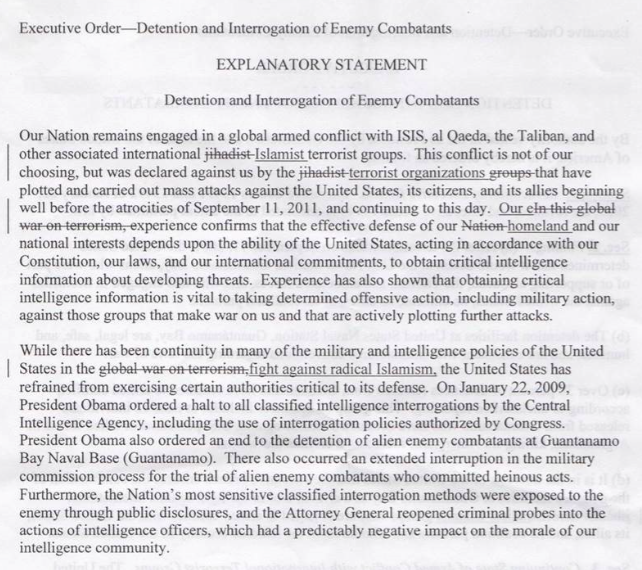
2012:

2017:

2012:
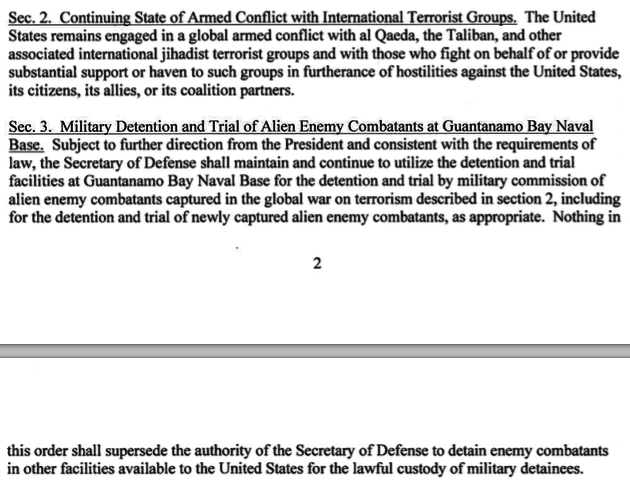
2017:
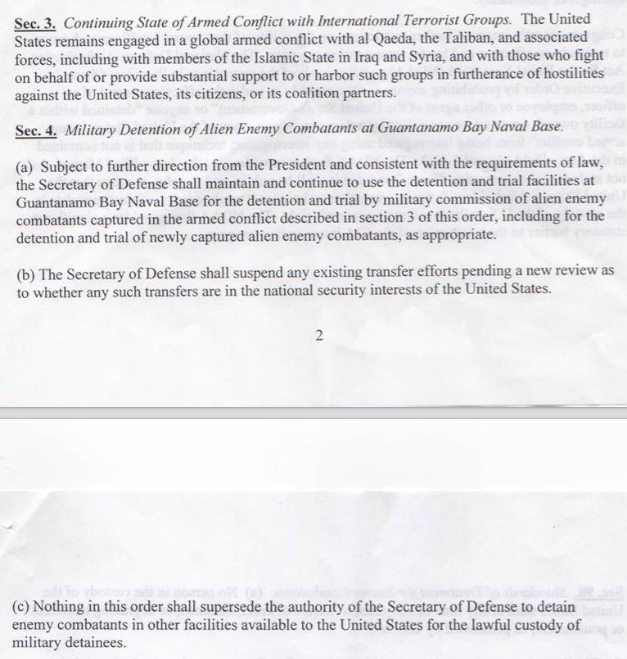
2012:
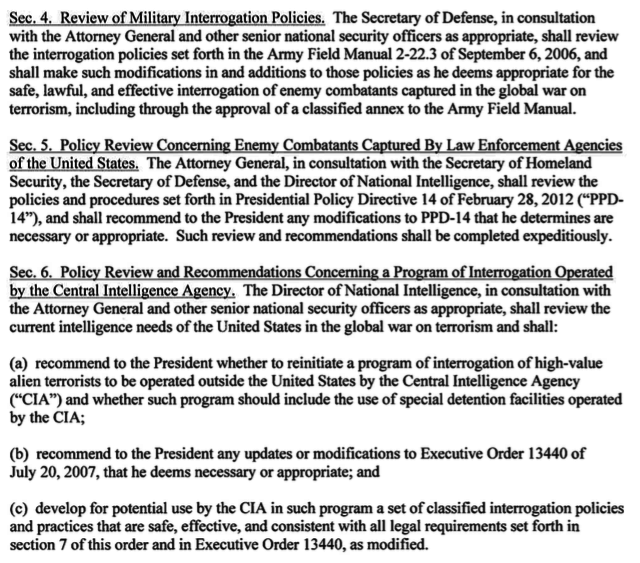
2017:
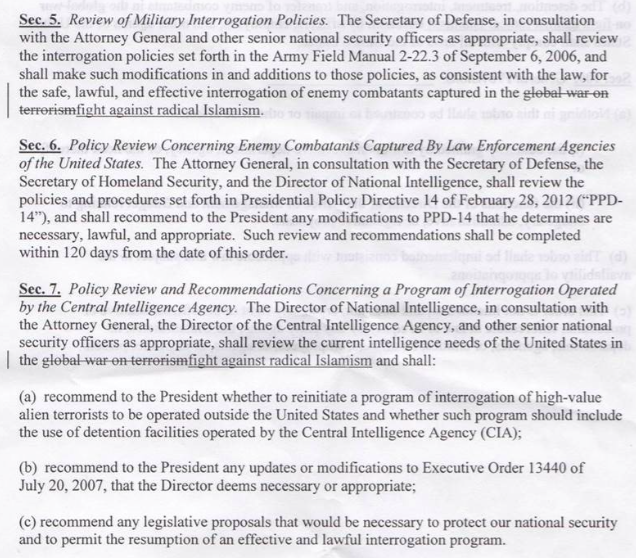
2012:
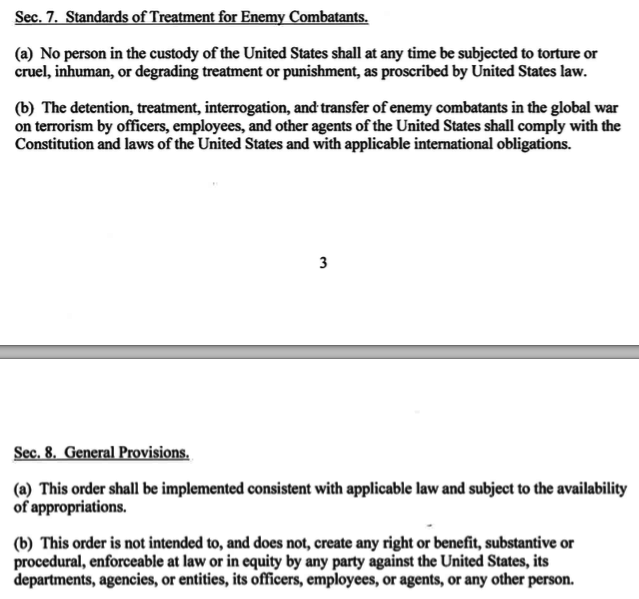
2017:
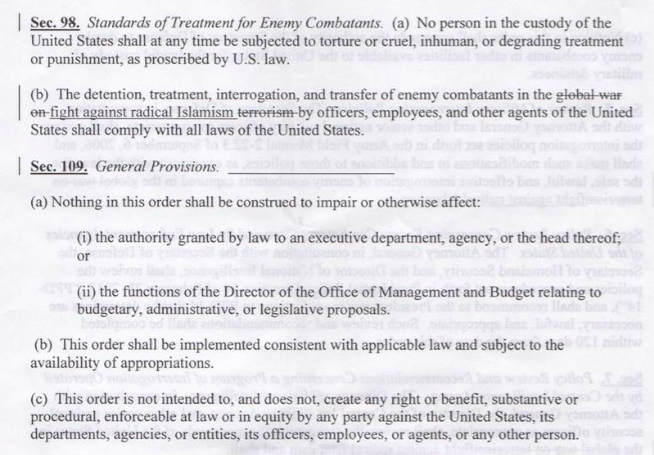
Nancy A. Youssef contributed reporting from Washington.

